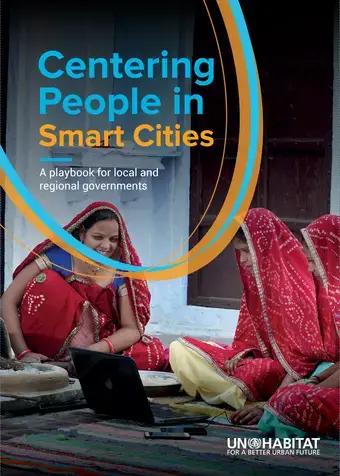
Country Profile
The Republic of Mozambique is the ninth least developed country in the world, and the most vulnerable to climatic hazards.
In addition:
The country is facing rapid urbanization. Although the urban growth is mainly caused by the natural population increase in cities and towns (2.7%), rural-urban migration contributes to 0.8% annually. So far a National Urban Policy exists awaiting approval from by the respective ministry to guide the country towards a renewed vision of what is urban, on how cities and rural areas connect in a sustainable way.
OUR WORK
National Urban Policy (NUP) is a coherent set of decisions via government led actors that coordinates various actors towards a common goal and vision for long term, resilient urban development.
UN-Habitat continues collaborating with Ministry of Land, Infrastructure and Transport (MOLIT) of Republic of Korea in supporting development of National Urban Policies (NUP):
- Phase 1 (2017~2022): Integrating people-centered smart city approaches in NUP for Islamic Republic of Iran, Republic of the Union of Myanmar, and Niger State, Nigeria.
- Phase 2 (2022~2026): Scaling up people-centered smart cities through National Urban Policy: Republic of Azerbaijan, Kingdom of Cambodia, Arab Republic of Egypt, Republic of Mozambique, and Republic of Paraguay.
UN-Habitat’s People-Centered Smart Cities Approach (PSCA) promotes deployment of technology and innovation to ensure sustainability, inclusivity, prosperity and human rights in cities By creating a framework that centers people in smart city development, the delivery of policies and programmes can be more inclusive and responsive to their needs.
Korea-funded NUPP seeks to integrate PSCA into NUP to promote and achieve transformative, inclusive, green, productive and resilient urban development.
objective
This programme aims at promoting a people-centered smart cities approach through National Urban Policies to ensure the increased focus on mainstreaming sustainable and inclusive digital transition in high level political forums on urban policy sensitive and people-centred smart cities in the Kingdom of Cambodia
INNOVATION
The Mozambique NUP will have four transversal themes that are reflected in the diagnostic, pillars and action plans of the implementation strategy. These issues are:
Public consultation discussions have focused on specific and vulnerable groups, using these cross-cutting issues as entry points for gathering information, expectations and establish propositions, with the goal of creating a NUP aimed at the development of people-centered smart cities.
Project document
Project Title |
National Urban Policy Programme, Phase Two: Scaling Up People-centered Smart Cities through National Urban Policy |
|---|---|
| Country | Republic of Mozambique |
| Overall Objective | Promote a people-centered smart cities approach through National Urban Policies in Mozambique |
| Key Ministry | Ministry of State Administration and Public Function (MAEFP) |
| Internal Stakeholders | Lead organizational Unit: Policy, Legislation and Governance Section, HQ
Implementing Unit: Mozambique Country Office with the support from HQ Project Team
Collaborating Units: Urban Practices Branch, Global Solutions Division/ External Relations, Strategy, Knowledge and Innovation Division, Programme Development Branch, HQ/ Regional Office for Africa, other Regional Offices (ROAP, ROAS and ROLAC) |
| External Stakeholders | MOLIT of the Republic of Korea
MAEFP (The Ministry of State Administration and Public Function) NUP Directive Council: MOPHRH (Ministry of Public Works, Housing, and Water Resources); MTA (Ministry of Land and Environment); MTC (Ministry of Transport and Communication); MEF (Ministry of Economy and Finance); MCTES (Ministry of Science and Technology, Higher and Technical Vocational Education); ANAMM (National Association of Municipalities) NUP Technical-Scientific Committee: Representatives of local and international academia (UEM University, others); National and international specialists and experts; Civil society representatives NUP Technical Team: Senior International Experts (Technical Coordination) National Thematic Experts and International Expert Technical Focal Points of the Directive Council Ministries |
| Country Contact | Duk Hwan Son: Senior Programme Officer, UN-Habitat (duk.son@un.org)
Sandra C.Roque: Head of Office, Mozambique Country Office, Regional Office for Africa (sandra.roque@un.org) |
| Major Outputs | One (1) National Urban Policy document integrated with people centered smart city approach, one (1) acupuncture project/ pilot intervention implemented based on NUP action plan as specified in the mini project document. |
| Budget | USD284,000 |
| Duration | November 2022 – October 2026 (48 months) |


